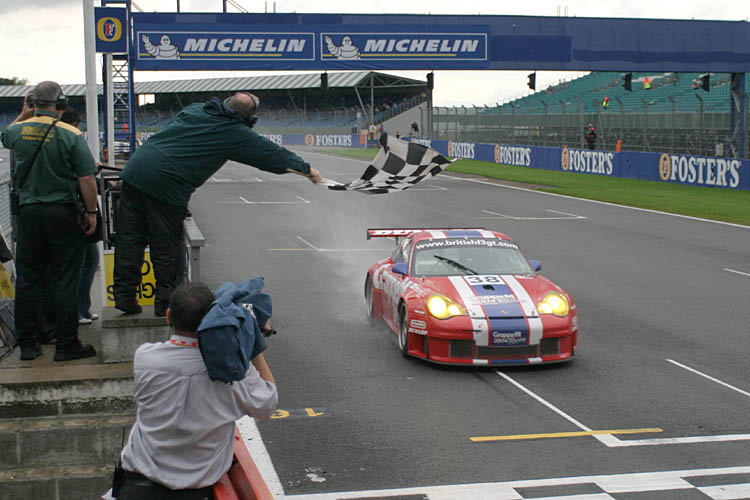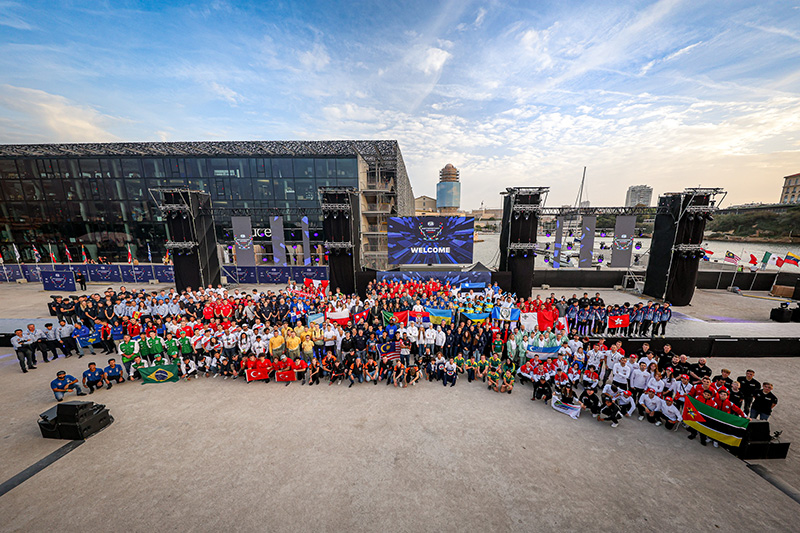SRO Motorsports Group
With three decades’ experience at the forefront of a continuously evolving industry, SRO Motorsports Group is the established global leader in GT racing. The company is chaired by its founder and CEO, Stéphane Ratel, who ranks among the leading decision-makers in international motorsport. With offices in London, Paris, the USA and Hong Kong, SRO’s work is facilitated by a dedicated global team of full-time and freelance staff.
A Brief History
-
-
1992
Stéphane Ratel organises his first race, at the Le Mans Bugatti Circuit, launching the Gentleman Drivers Trophy. The highly successful one-make series uses a specifically developed GT race car from French manufacturer, Venturi.
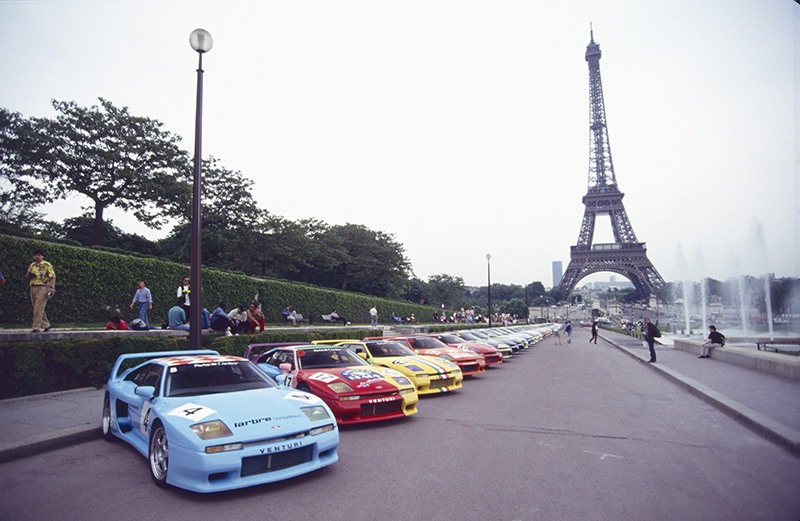
J’adore! Ratel launched his first series in auspicious surroundings -
1993
As director of Venturi Competition, Stéphane Ratel works closely with the Automobile Club de l’Ouest (ACO) to reintroduce the GT category at Le Mans. He enters seven Venturi LM cars at the 24 Hours before organising, in collaboration with Patrick Peter, a first GT race at Circuit Paul Ricard.
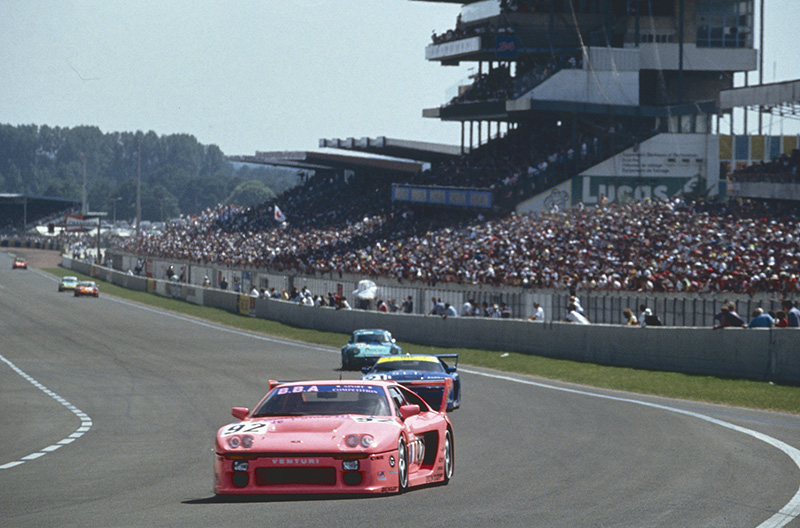
Five of Venturi's seven cars were classified finishers at Le Mans -
1994
Joined by Jurgen Barth, Patrick Peter and Stéphane Ratel launch the BPR Endurance Series; an instant success with fast growing grids and global events including the Suzuka 1000km and first-ever international circuit race event in the People’s Republic of China, on the streets of Zhuhai.
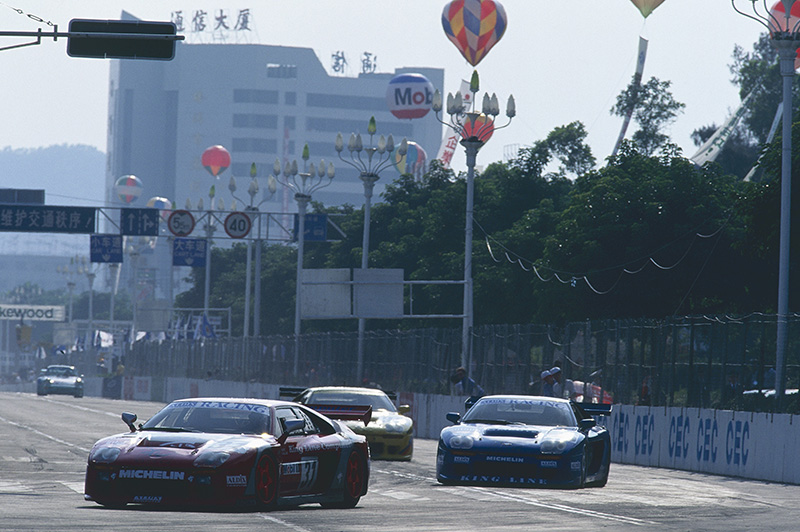
BPR made history by racing in Zhuhai -
1995
Stéphane Ratel leaves Venturi to start his own company, the Stéphane Ratel Organisation (SRO Ltd). He opens a London office and takes over the organisation of the Venturi Trophy, which is renamed the Philippe Charriol Supersport Trophy. Spearheaded by the close competition between the legendary McLaren F1 GTR and Ferrari F40 LM, the BPR Global Endurance Series enjoys its most successful season.
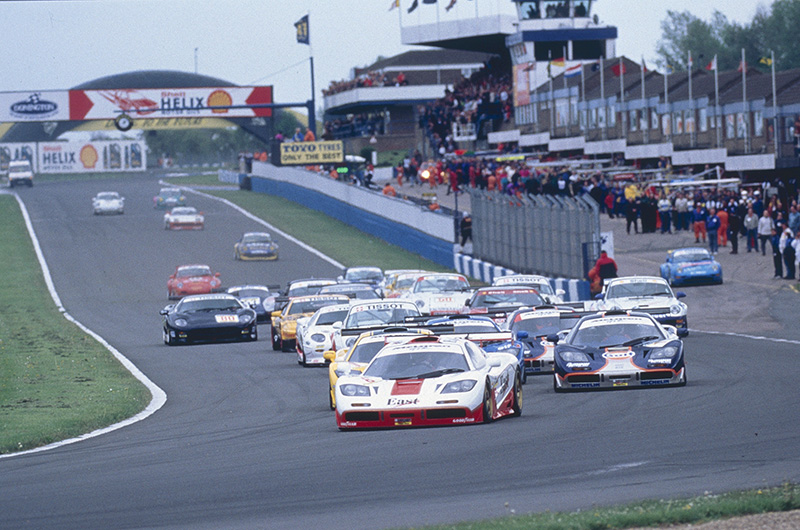
Donington welcomed BPR in 1995 -
1996
The introduction of the controversial Porsche 911 GT1, a competition car purposedly homologated for the road rather than a production car prepared for competition, therefore in contravention with the fundamentals of GT racing, leads to a disagreement between the BPR partners and to their separation at the end of the season. That same year, SRO introduces racing at Lamborghini with the successful launch of the Supertrophy, the first one-make series with V12-powered supercars.
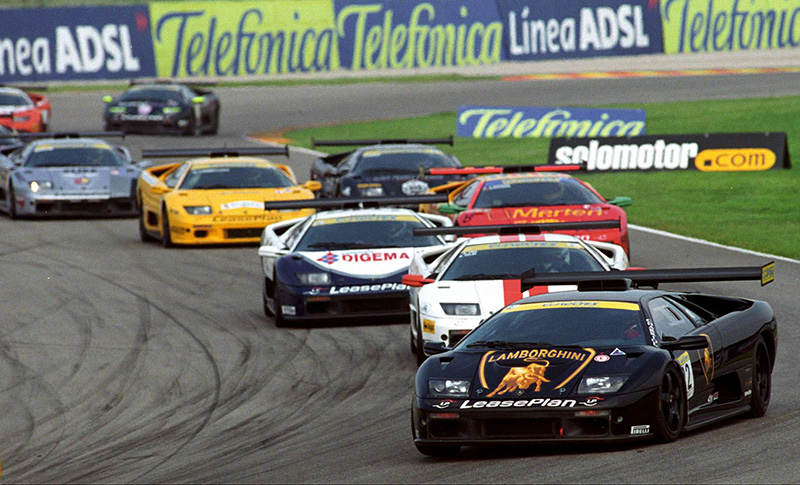
SRO launched and managed what would become the Lamborghini Super Trofeo series -
1997
In partnership with Bernie Ecclestone, SRO becomes the promoter of the new FIA GT Championship and witnesses the unsustainable direct manufacturer competition between BMW, Mercedes and Porsche.
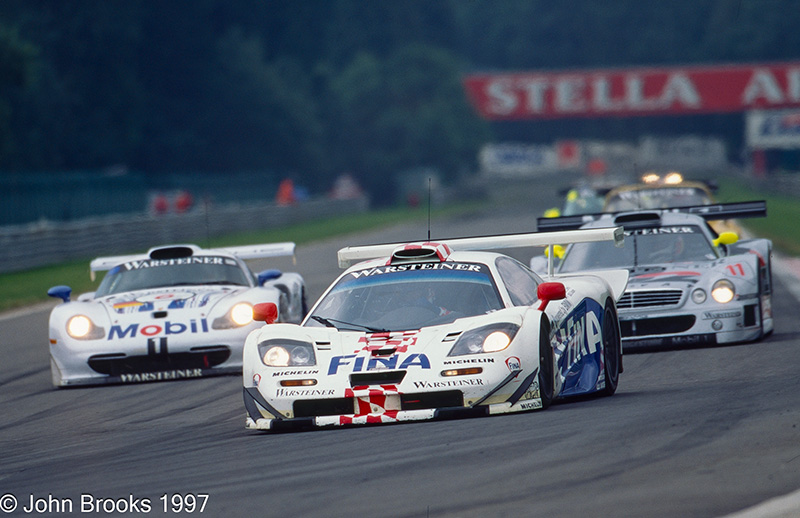
Manufacturer-led GT1 era was short but sweet -
1998
Escalating costs, unmatched by marketing returns, drive private teams away and bring an end to the GT1 category. In the meantime, SRO opens an office in Paris and takes over the French GT Championship.
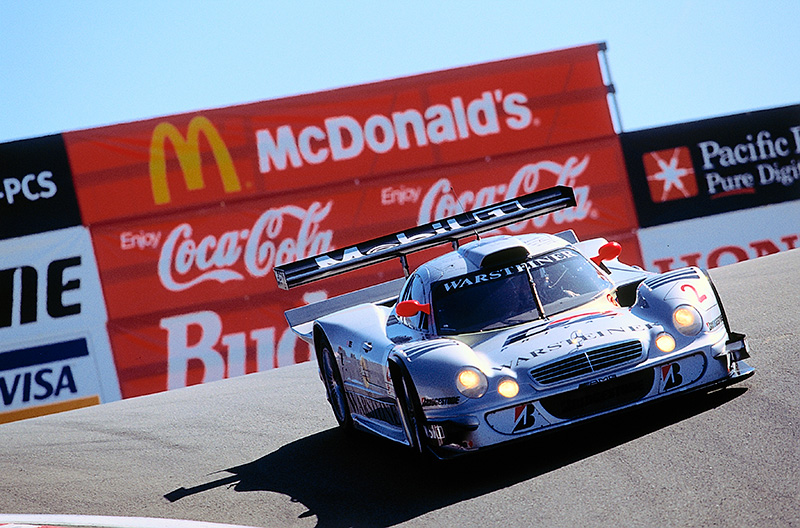
Mercedes' CLK GTR and LM won all 10 races in '98 -
1999
The FIA GT Championship is restructured around the GT2 category and Bernie Ecclestone, challenged by the EU Commission over his dominant position in European motorsport, leaves the partnership at the end of the season. SRO is now the FIA GT Championship’s sole promoter.
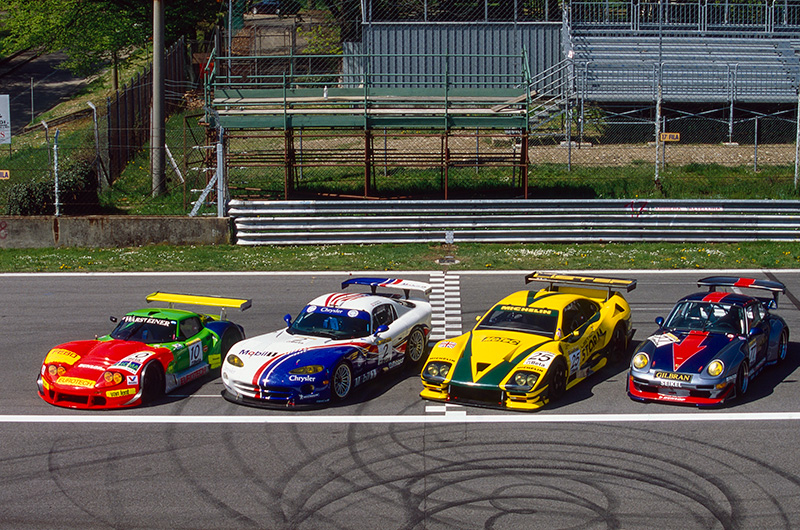
GT2 became FIA GT's senior class © John Brooks -
2000
Having learned from the first GT1 era, SRO undertakes to rebuild GT racing around private teams and independent engineering companies instead of with direct manufacturer involvement. It obtains from the FIA the right to homologate cars on a technical passport without the need for a manufacturer’s consent and invests in the development of the Ferrari 550 to secure the essential return of the prestigious Italian brand to GT racing. A new category, NGT, is introduced for less powerful cars while GT2 is renamed GT.
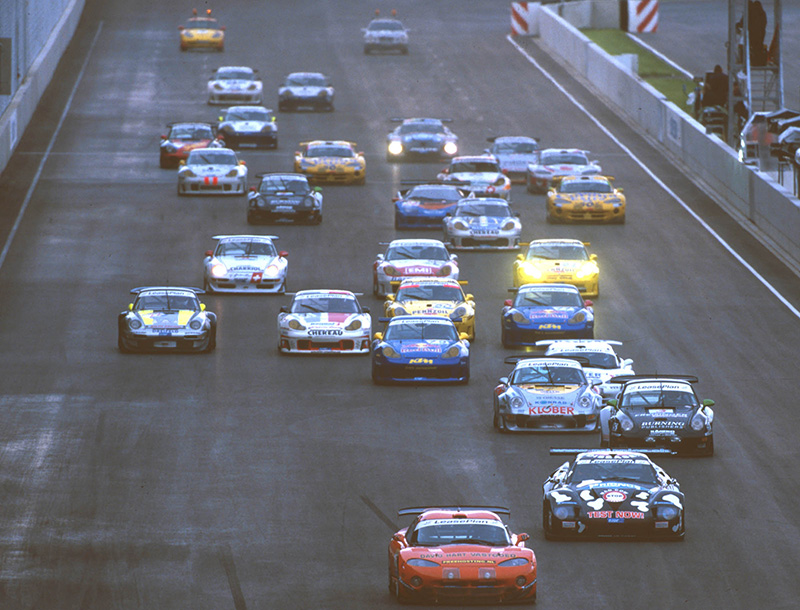
-
2001
With the support of TV broadcaster Eurosport, the FIA GT Championship, in full form again, joins forces with the FIA European Touring Car Championship and Formula Renault Eurocup to run as the Eurosport Super Racing Weekend. A stepping stone to SRO’s future expansion, the famous 24 Hours of Spa switches from touring cars to GTs and becomes the FIA GT Championship’s blue riband event.
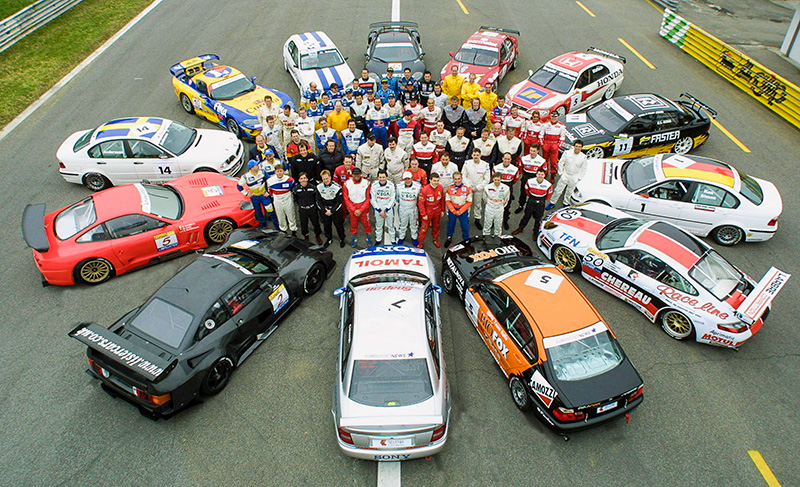
Eurosport tie-up brought greater variety to FIA GT events -
2002
The Lamborghini Supertrophy’s last season under SRO’s direct promotion. Over seven years the impressive one-make series, having visited all five continents, became the proving ground of the key elements of SRO’s future success: heavier cars with unrestricted and powerful engines ultimately lead to the GT3 category, while the innovative two-driver sprint format and driver categorisation become commonplace around the world.
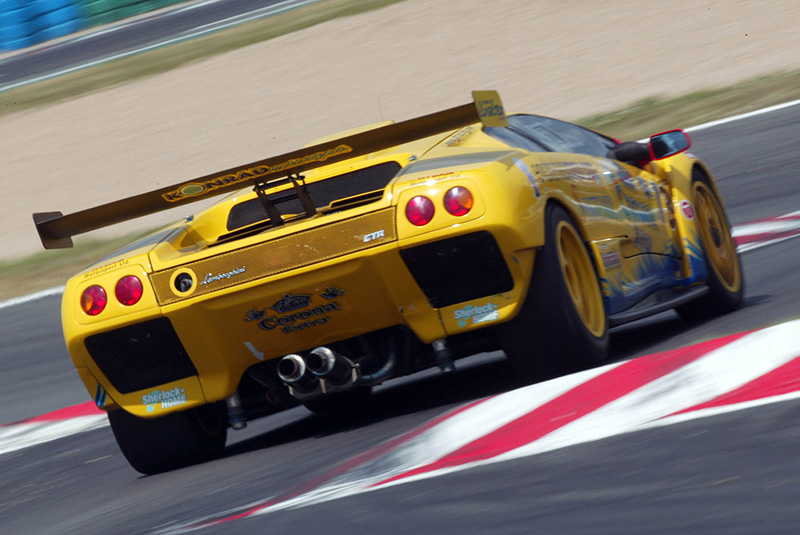
Diablos were a cornerstone of SRO’s activities for seven years -
2003
SRO is trusted by the FIA to take over the promotion of the ailing FIA Sportscar Championship. After successfully reviving the 1000km of Spa, SRO proposes to restructure the championship exclusively around the same format and resurrects the once legendary 1000km of Nurburgring, Monza and Silverstone in addition to Spa. The proposition attracts the interest of the ACO, which enters into a partnership with SRO to form the Le Mans Endurance Series the following year.
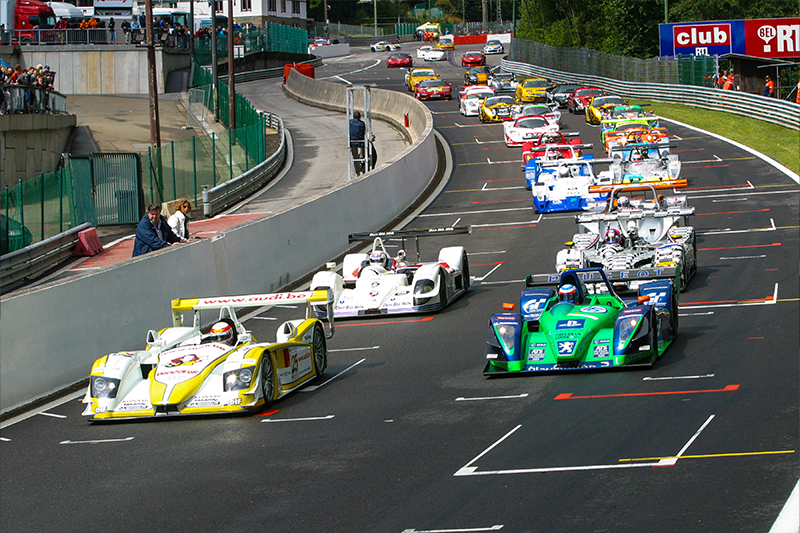
Sports-prototypes, GTs and hatchbacks (!) raced together at Spa 1000km -
2004
SRO London takes over the promotion of the British F3 and GT Championships. SRO runs the FFSA Super Serie, bringing together the major French national series.
SRO's first season as British GT organiser -
2005
Threatened by the Maserati MC12, again a full-blown race car purposedly homologated for the road, the FIA GT Championship introduces BOP. The revolutionary concept of balancing race car performance is met by such resistance that SRO is forced to support the entry of a competitive Ferrari. It goes on to win the championship, proving the merit of BOP. The GT1 and GT2 names are reintroduced before, later that year, SRO presents the framework for a new category to the FIA: GT3.

BoP's introduction laid the foundations for future success -
2006
The FIA GT Championship breaks away from Eurosport and sets up its own calendar. The new FIA GT3 European Championship proves a huge success, with grids of more than 40 cars and eight manufacturers represented during its inaugural season.
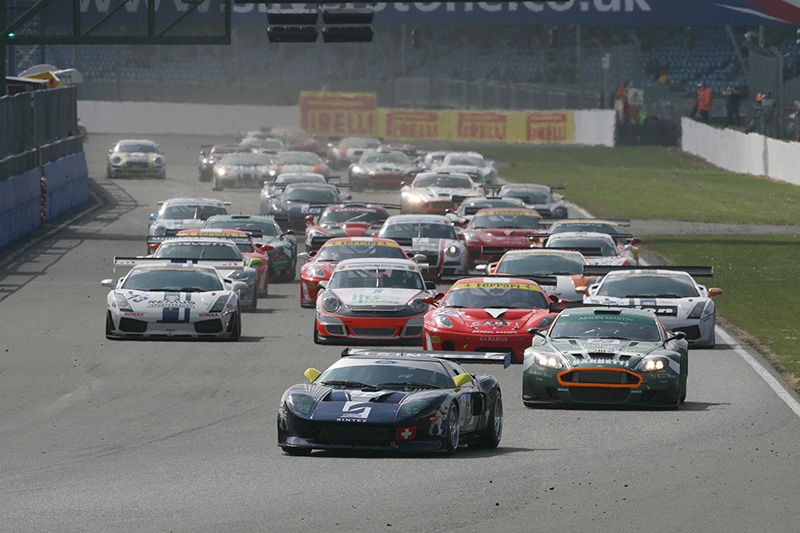
GT3 hit the ground running -
2007
Motivated by the success of GT3, SRO – this time independently from the FIA – introduces the GT4 category for less powerful GT cars that are even closer to their road-going counterparts. SRO Germany and SRO Latin America are incorporated, in partnerships, to develop the GT3 category globally, with the ADAC GT Masters and Brazil GT3. Both partnerships will be dissolved five years later.
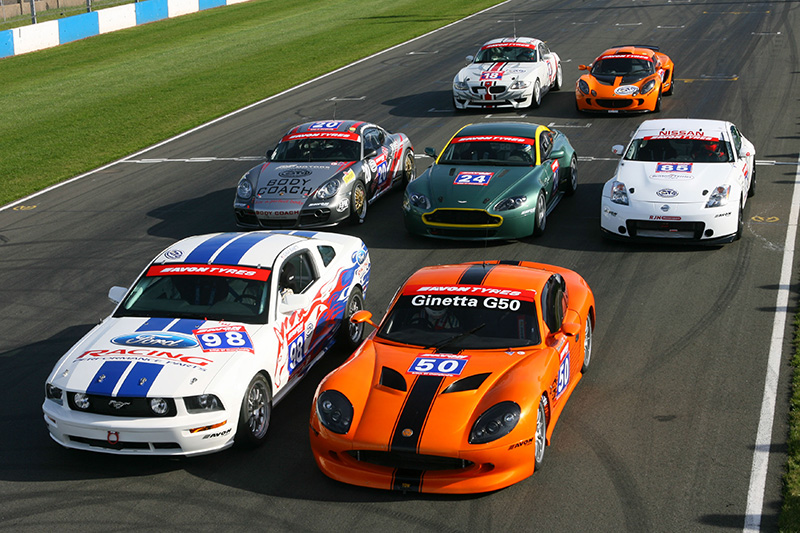
GT4’s humble beginnings -
2009
The first GT4 franchise, the Dutch GT Championship, gets underway with great success.
-
2010
A new chapter in GT racing is written with the launch of the FIA GT1 World Championship. Six prestigious brands – Aston Martin, Corvette, Ford, Lamborghini, Maserati, and Nissan – are each represented by two teams fielding two cars, forming an impressive grid of 24 GT1 machines. Focussing on its new World Championship, SRO sells its involvement in the Le Mans Endurance Series to the ACO and steps out of the French GT Championship’s organisation at the end of the season.
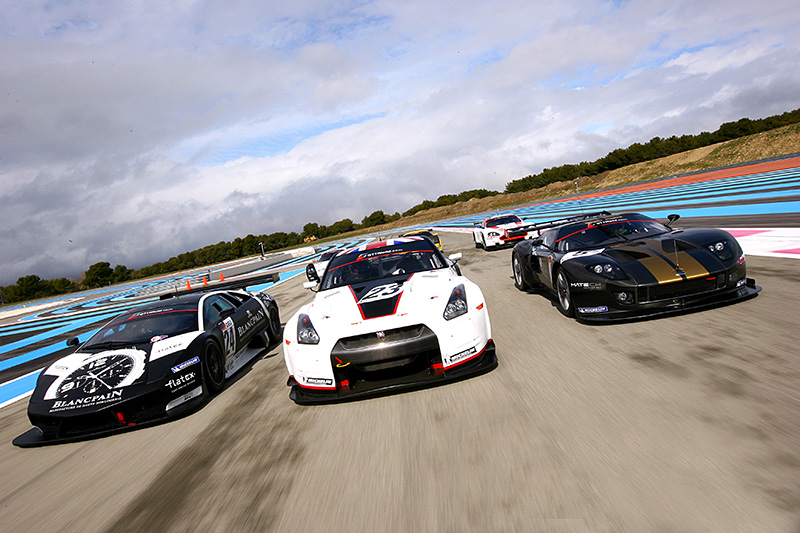
GT1's second coming was spectacular, but also short-lived -
2011
With the new FIA GT1 World Championship using a sprint race format, there is clear need for an international GT endurance championship. Thanks to the support of Swiss watch manufacturer Blancpain, the Blancpain Endurance Series is launched and meets instant success, with a healthy entry for its inaugural five-race series centred around the Total 24 Hours of Spa.
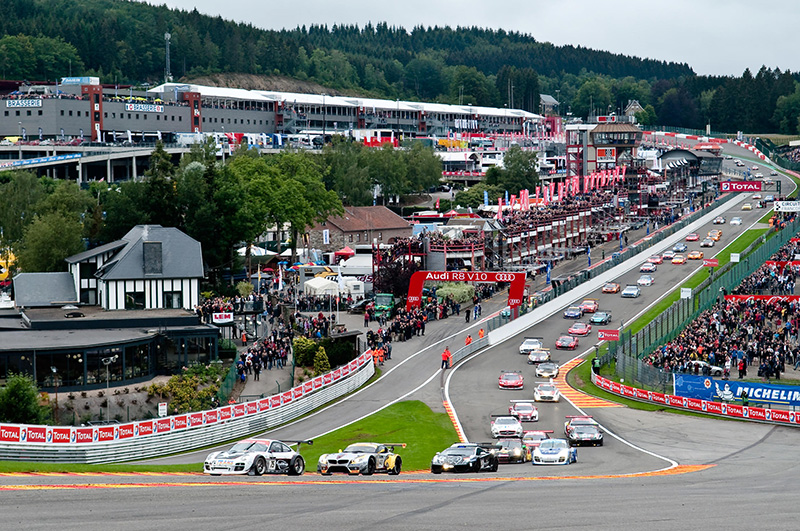
62 GT cars charge towards Raidillon -
2012
Despite attractive calendars featuring events in Argentina, Brazil, China and the UAE and an even more ambitious one planned for the new season, the FIA GT1 World Championship is struggling; financially with marketing returns not matching the costs of running an FIA World Championship, and sportingly with the FIA Endurance World Championship’s launch diverting manufacturer attention towards the new GTE category promoted by the ACO. Ran with a reduced GT3 car grid exclusively in Europe, the championship – no longer worthy of its name – is abandoned at the end of the season.
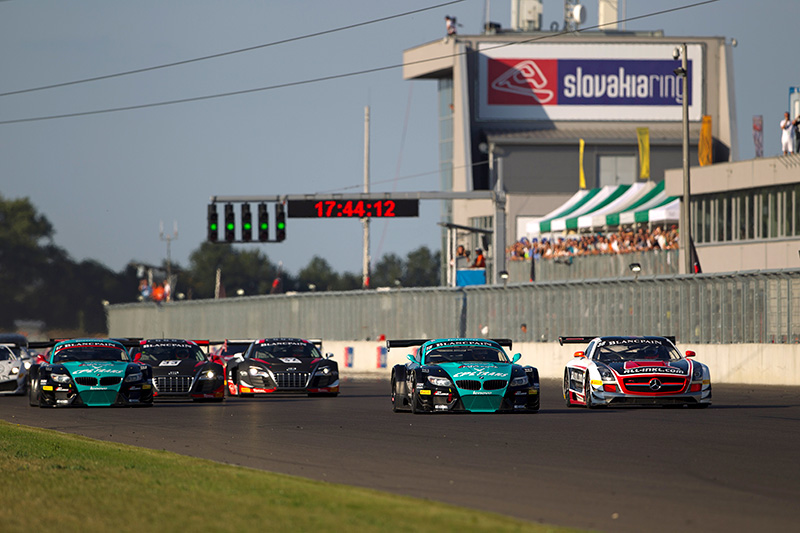
GT1’s demise forced SRO to re-focus its attention elsewhere -
2013
Recovering after a difficult 2012 season, SRO focuses on the GT3 category. The new FIA GT Series retains the sprint format of the former FIA GT3 European Championship while the Blancpain Endurance Series reaches record grids of 55 cars.
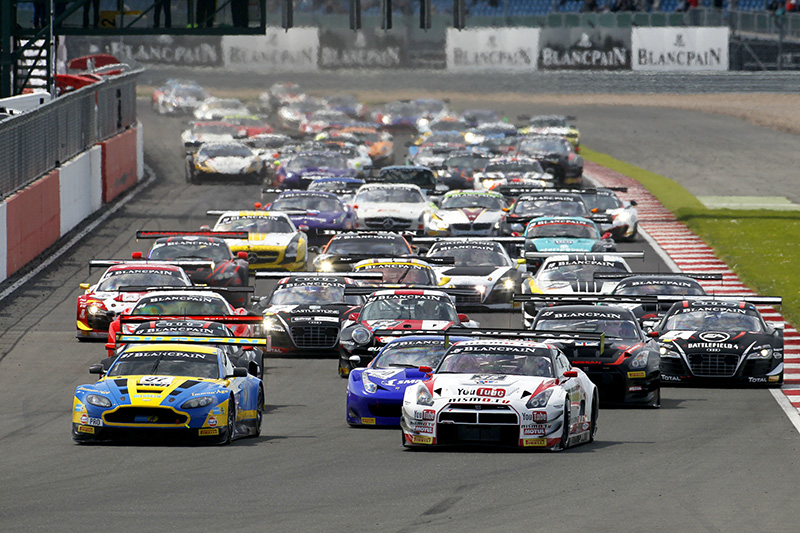
Silverstone attracted a huge GT3 entry -
2014
The former FIA GT Series is brought under the Blancpain banner. Sprint and Endurance are united and rebranded Blancpain GT Series.
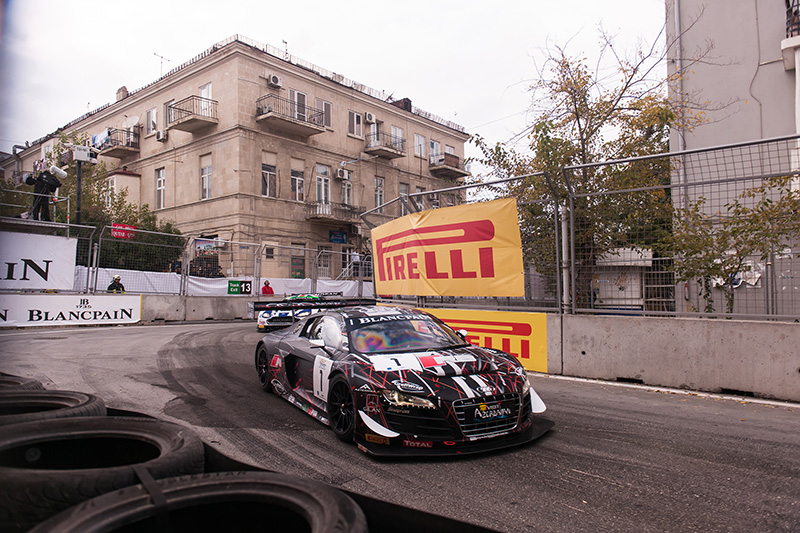
GT3s raced in Azerbaijan’s capital three years before F1 arrived -
2015
Remaining on good terms with the FIA despite ceasing promotion of the FIA GT Series, SRO is trusted to coordinate the new FIA GT World Cup at the Macau Grand Prix.
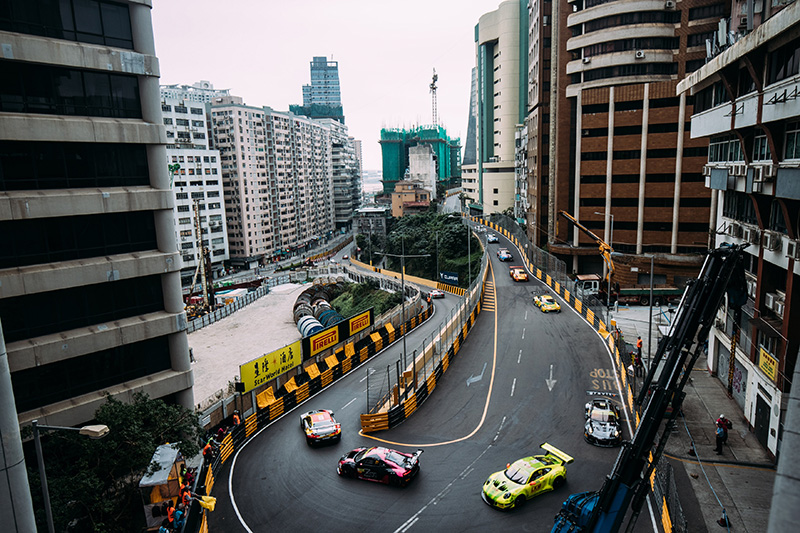
Close collaboration between SRO and the FIA brought GT manufacturers to Macau -
2016
The Intercontinental GT Challenge is created, forming a new global competition aimed at GT3 manufacturers by bringing together the Bathurst 12 Hour, 24 Hours of Spa and newly established Sepang 12 Hours. After years of slow development, the GT4 Series finally takes off. In partnership with the Royal Automobile Club Belgium (RACB) SRO acquires Curbstone Track Events and develops it over time as the leading European track day events company.
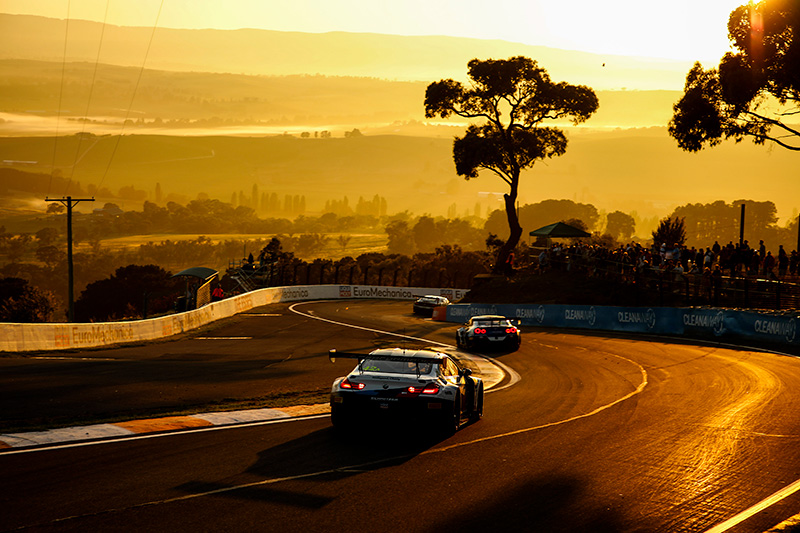
The Bathurst 12 Hour uniquely starts just before dawn -
2017
SRO Motorsports Asia is incorporated in Hong Kong to promote Blancpain GT Series Asia, with six events held in Malaysia, Thailand, Japan and China. SRO also returns as the French GT Championship organiser and relaunches it with the booming GT4 category.
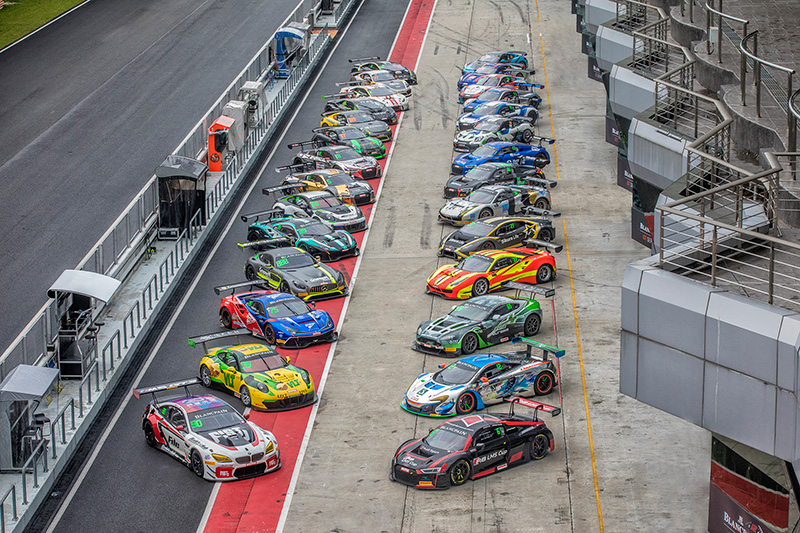
SRO achieved instant success in Asia -
2018
SRO takes a controlling stake in WC Vision and renames it SRO Motorsports America. Its primary asset, Pirelli World Challenge, is also subsequently rebranded as Blancpain GT Series America. Elsewhere, SRO wins the FIA tender to promote a Pro-Am focused GT World Cup. SRO turns this into a Nations Cup event held in Bahrain where each of the 20 participating nations is represented by a single GT3 car.
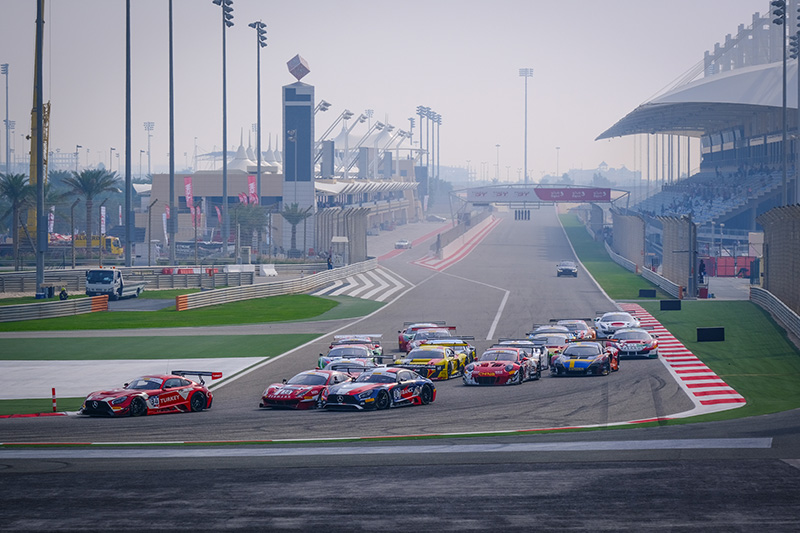
Turkey claimed victory in the one and only Nations Cup -
2019
Building on the GT Nations Cup’s success, SRO proposes to the FIA a new multi-disciplinary event that sees drivers competing for their nation. The first edition of these Olympics of Motorsports, named FIA Motorsport Games, takes place in Rome with a spectacular opening ceremony at Circus Maximus. 49 Nations are represented across six categories. The Intercontinental GT Challenge, now comprising the Suzuka 10 Hours, revived Kyalami 9 Hour and California 8 Hours at Laguna Seca, as well as Bathurst and Spa, enjoys its most successful season with nine manufacturers officially entered.
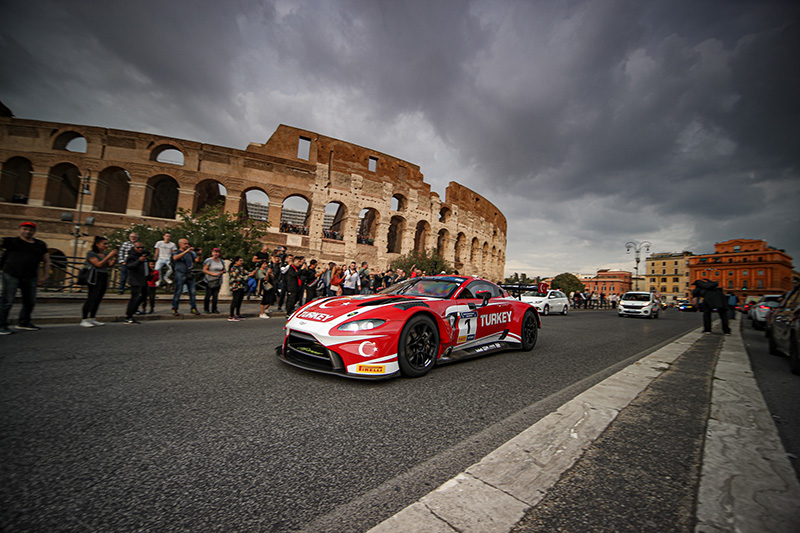
Rome provided a suitably spectacular setting for the first 'Olympics of Motorsport’ -
2020
With the support of AWS, the former Blancpain GT Series is rebranded GT World Challenge, encompassing regional series in Europe, Asia and America as well as an overall championship for manufacturers. The covid pandemic forces SRO to restructure its race calendars globally while creating an opportunity to develop a successful online sim racing series using the acclaimed Assetto Corsa Competition simulation game based on GT World Challenge.
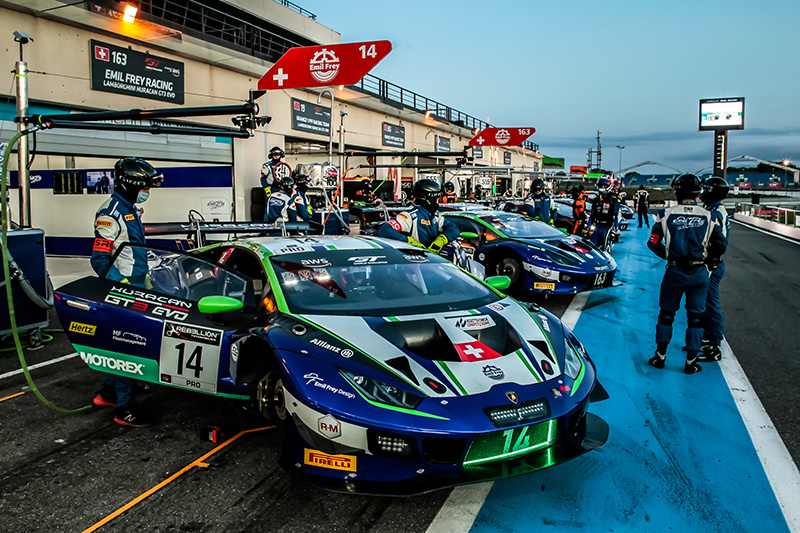
A new name for SRO's pan-continental championship -
2021
Australia becomes the fourth continent to join Fanatec GT World Challenge Powered by AWS. Thanks to the support of sim racing equipment supplier Fanatec and a dedicated esports arena at five of Europe’s events, GT World Challenge is the first motorsport series to mix real and virtual, with one driver per team competing virtually for real-world teams’ championship points. The GT2 European Series – a new category situated between GT4 and GT3 in terms of cost and performance – plus the GT1 Sports Club for the most exclusive track cars, and the French Touring Car Championship (inspired by SRO America TC regulations) all debut.
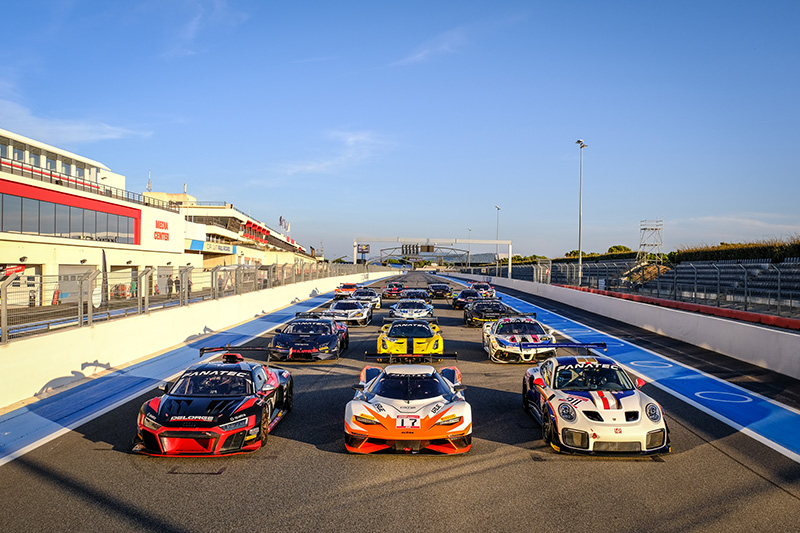
The GT2 name returned -
2022
Marseille hosts the second edition of the FIA Motorsport Games, which expands to 16 categories and 72 nations. Fanatec GT World Challenge Asia returns after a three-year hiatus. It is the first Asian series to resume racing post-covid pandemic.
France hosted the second FIA Motorsport Games -
2023
Building on its success in Asia, SRO partners with the ACO to co-promote the Asian Le Mans Series.
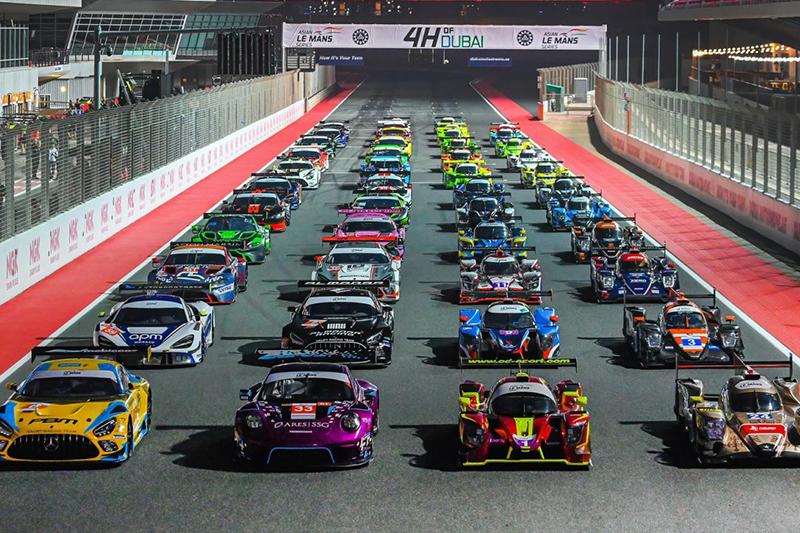
Asian Le Mans enjoyed a resurgence post-Covid -
2024
SRO Motorsports Australia is incorporated to take full ownership of Fanatec GT World Challenge Australia and of the newly launched Monochrome GT4 Australia Series. The global GT World Challenge – for which points are scored across four continents – attracts a record nine manufacturers, while its GT4 equivalent – comprising eight series in the same four regions – features eight brands in its first season. ADAC 24H Nürburgring joins the Intercontinental GT Challenge while the CrowdStrike 24 Hours of Spa celebrates its centenary edition in style. In Asia, the Japan Cup is introduced as a standalone championship. The FIA Motorsport Games close out the season across four venues in Valencia where 650 competitors from 82 nations compete in 26 disciplines.
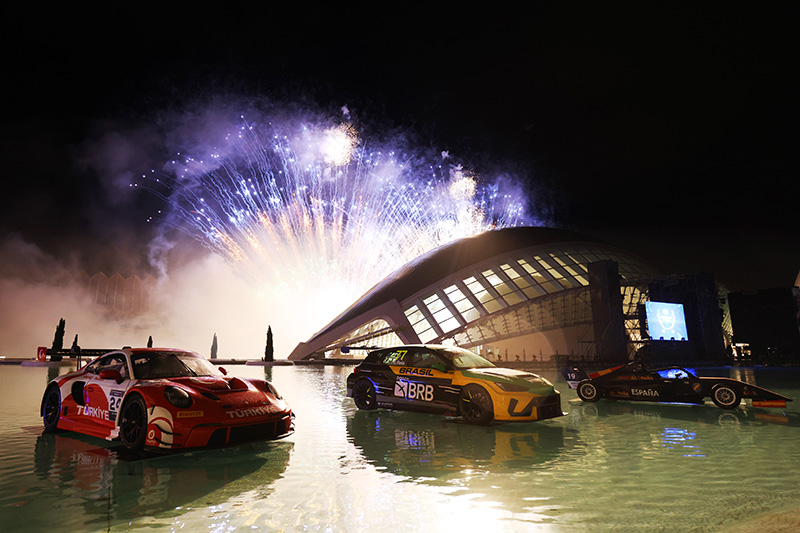
Valencia hosted the biggest FIA Motorsport Games to date -
2025
A new China-based GT4 series, the SRO GT Cup, kicks off in spectacular fashion with two support races at the Chinese Formula 1 Grand Prix in Shanghai. GT World Challenge Asia’s first street race is also staged in Beijing, while the Suzuka 1000km returns to Intercontinental’s calendar following a six-year hiatus
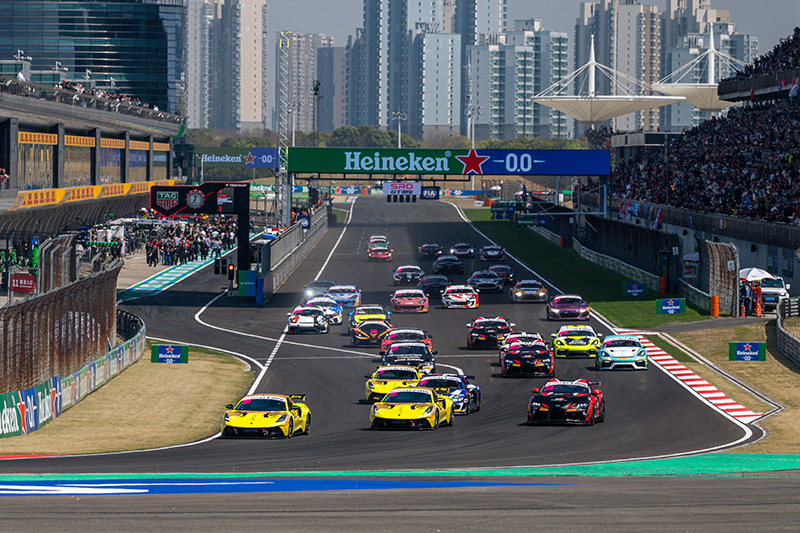
A spectacular start to SRO GT Cup in Shanghai

